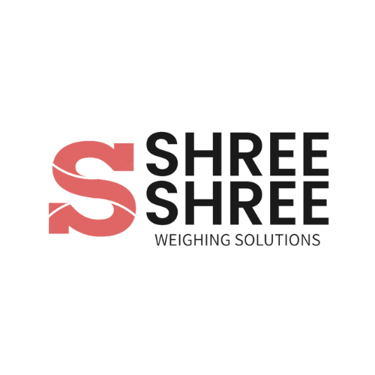How to Calibrate Your Weighing Scale for Accurate Measurement?
Calibration is a crucial process that ensures your weighing scale gives precise and accurate measurements every time you use it. Inaccurate readings can lead to faulty transactions, inventory errors, or even legal issues if your scale isn’t calibrated correctly. At Shree Shree Weighing Solutions, a leading weighing scale manufacturer and service provider in Ahmedabad, we guide you through the importance of calibration and show you how to properly calibrate your scale.
5/11/20253 min read


What is Calibration?
Calibration refers to the process of adjusting the scale so that it provides accurate readings based on a known standard or reference weight. It involves comparing the readings of the scale against certified test weights and making necessary adjustments to eliminate any discrepancies.
Why is Calibration Important?
Accuracy: A properly calibrated scale ensures that you get precise measurements every time, which is essential for businesses that rely on accurate readings, such as retail, pharmaceutical, or industrial applications.
Compliance: For businesses that engage in commercial trade, calibration ensures compliance with Legal Metrology regulations in India, preventing fines or penalties.
Operational Efficiency: Calibration helps avoid errors in pricing, inventory management, and production processes, saving you both time and money.
Long-Term Reliability: Regular calibration maintains the reliability and longevity of your scale, preventing the need for costly repairs or replacements.
When Should You Calibrate Your Weighing Scale?
Before First Use: If you’ve just purchased a new scale, it's important to calibrate it before using it in business operations.
After Relocation: If you move your scale to a different location, especially if it is exposed to different environmental factors (like temperature, humidity, or vibrations), recalibrate it to ensure accuracy.
After Heavy Use: Frequent use can cause minor shifts in the scale’s calibration, so it’s a good idea to recalibrate periodically.
When It Shows Inaccurate Readings: If you notice discrepancies in the weight displayed by your scale, it’s time to calibrate it again.
Steps to Calibrate Your Weighing Scale
Step 1: Ensure the Scale is Clean and Placed on a Flat Surface
Before you begin, clean the platform of your scale to remove any dust, dirt, or residues that may interfere with the accuracy.
Place the scale on a flat, stable surface away from vibrations or direct sunlight to ensure the calibration is accurate.
Step 2: Turn on the Scale and Zero It
Turn on your digital scale and let it warm up for a few minutes if necessary.
Press the ‘Zero’ or ‘Tare’ button to set the scale to zero. This step is important before you start the calibration process.
Step 3: Use a Certified Test Weight
Obtain a certified calibration weight that matches the scale’s capacity. For accuracy, use weights certified by Legal Metrology or an internationally recognized standard.
Place the weight on the center of the platform and wait for the scale to stabilize.
If the displayed weight matches the reference weight, the scale is already calibrated. If not, you will need to adjust it.
Step 4: Adjust the Calibration (if Necessary)
On many digital scales, you can adjust the calibration by entering the calibration mode. This process differs depending on the scale model, so refer to the user manual for specific instructions.
Adjust the scale’s settings until the displayed weight matches the certified test weight.
Some digital scales have auto-calibration features where the scale automatically adjusts based on the reference weight placed on it.
Step 5: Verify Calibration
After adjusting, remove the test weight and then recheck the display by placing the test weight back on the platform.
Repeat the process to ensure the scale is calibrated correctly.
Step 6: Record the Calibration
For future reference, it’s important to document the calibration date and the weights used, especially for commercial operations that require calibration records for Legal Metrology compliance.
When to Seek Professional Calibration Services
While many modern digital scales are user-calibratable, there are instances where professional calibration is required:
If you notice persistent calibration errors despite following the steps
When your scale is heavily damaged or has undergone heavy wear
If your scale doesn’t have an auto-calibration function or the manual process is too complex
For large, high-capacity industrial scales, professional service ensures precision and accuracy are maintained across all measurement ranges
At Shree Shree Weighing Solutions, we offer professional calibration services to ensure your scales are always up to legal standards and performing at their best.
How Often Should You Calibrate Your Weighing Scale?
For retail applications: Calibrate your scale monthly or when you notice discrepancies in the weight readings.
For industrial use: Regular calibration every quarter is recommended to ensure the scale’s performance.
For laboratory or pharmaceutical scales: Calibration should be performed frequently—at least once a month—to maintain high accuracy.
Conclusion
Proper calibration is key to ensuring that your weighing scale operates accurately and reliably. Whether it’s for retail transactions, pharmaceutical precision, or industrial weighing, calibration helps maintain your scale’s integrity. If you need help calibrating your scale or want to ensure it’s always compliant with local regulations, Shree Shree Weighing Solutions is here to assist you with expert calibration services across Ahmedabad and Gujarat.
Need Professional Calibration Services?
📞 Contact us today to schedule a calibration for your scale or request an on-site visit for your business.
📍 Visit us at our Ahmedabad showroom, or let us know if you'd like a technician to visit your business across Gujarat.
